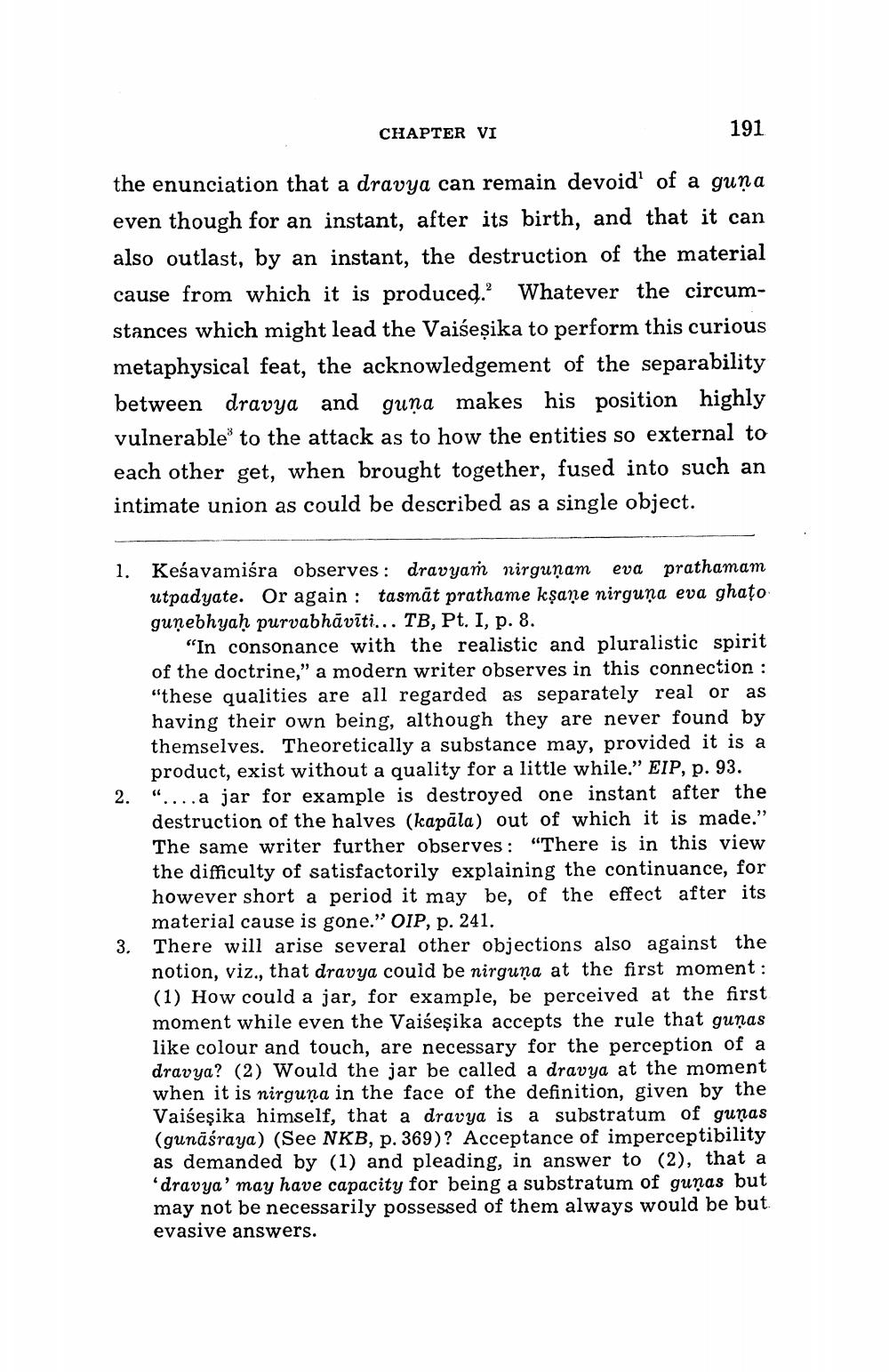________________
CHAPTER VI
191
the enunciation that a dravya can remain devoid of a guņa even though for an instant, after its birth, and that it can also outlast, by an instant, the destruction of the material cause from which it is produced. Whatever the circumstances which might lead the Vaišeșika to perform this curious metaphysical feat, the acknowledgement of the separability between dravya and guna makes his position highly vulnerable to the attack as to how the entities so external to each other get, when brought together, fused into such an intimate union as could be described as a single object.
Keśavamiśra observes: dravyan nirguņam eva prathamam utpadyate. Or again: tasmāt prathame kşane nirguņa eva ghato guņebhyaḥ purvabhāvīti... TB, Pt. I, p. 8.
"In consonance with the realistic and pluralistic spirit of the doctrine," a modern writer observes in this connection : "these qualities are all regarded as separately real or as having their own being, although they are never found by themselves. Theoretically a substance may, provided it is a product, exist without a quality for a little while.” EIP, p. 93. "....a jar for example is destroyed one instant after the destruction of the halves (kapāla) out of which it is made." The same writer further observes: "There is in this view the difficulty of satisfactorily explaining the continuance, for however short a period it may be, of the effect after its material cause is gone." OIP, p. 241.
There will arise several other objections also against the notion, viz., that dravya could be nirguna at the first moment: (1) How could a jar, for example, be perceived at the first moment while even the Vaiseșika accepts the rule that guņas like colour and touch, are necessary for the perception of a dravya? (2) Would the jar be called a dravya at the moment when it is nirguņa in the face of the definition, given by the Vaiseșika himself, that a dravya is a substratum of guņas (gunāśraya) (See NKB, p. 369)? Acceptance of imperceptibility as demanded by (1) and pleading, in answer to (2), that a 'dravya' may have capacity for being a substratum of guņas but may not be necessarily possessed of them always would be but. evasive answers.
3.




